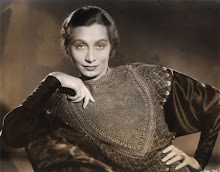
There was a game the man played with himself Christmas week a year ago in the visitor's room on that floor of the hospital which looked down on the city, southward across Central Park. The man's right eye was infected and he couldn't read or watch television for two months. His vision was obscured by the medication the nurses dropped into his eye every hour around the clock. The sedatives handled most of the pain but not all of it.
So at dusk, led there by boredom, the man would go to the visitor's room. He closed both his eyes and then, slowly, opened the bad one. It was the most beautiful sight he had ever seen.
The lights of the city ran together, in a furry confusion. They didn't collide or sparkle but blended together in a glowing softness. The lights of the city were more like the petals of flowers strewn across the night which seemed to be made of silk. The colors of the night seemed to be dye that had flowed from a child's dream of Christmas.
The buildings lost their shape. They rippled and bulged, like a happy fat man's vest billowing with laughter. The sky was tender above them, more like a luminous moon-dappled sea. The stars lost their hard gleam. They shone, marvelously distorted, in fuzzy bursts, as though they were diamonds that had exploded into fluff. The moon melted into a wide bloated caricature of a man in the sky.
After a while the man strolled to the night nurse's desk to chat. They had sent most of the patients in the children's room home for Christmas. The ward was shut down. Three of the children had been brought to the floor where the man was to spend Christmas. One was Penelope.
There stood Penelope small and sedate in her maroon bathrobe. There she was, imbedded in her silence, proudly inquisitive, a child with russet hair, primly defiant. She came onto this floor of sick adults as an equal. Penelope was too stern, too poised, too serene for childhood.
This is Penelope, the nurse explained to the man, she is a little lady. She was, the nurse said, the perfect patient who had become accustomed to the routine of hospitals. It seemed logical for her to be there at Christmas time. The man thought it must be terrible for a child who has been in hospitals so much that she does not find them strange. The other children cried, the nurse said, but Penelope was brave and dignified and not even afraid of needles.
The flattery did not touch Penelope. She examined the man with a decent inquisitiveness. The dark glasses and his heavy beard did not startle her. In her childhood, spent in so many hospitals, all men had defects. No one was whole, only the doctors and the nurses. Penelope had a cleft palate. There had been a series of operations. One of the great surgeons had become interested in her case. It was slow but Penelope had been educated to wait.
Penelope, the nurse said with a sorrow that wasn't professional, refused to talk. The ridicule of other children had shut her up. The crippled voice had been imitated by bantering playmates. So Penelope spoke to no one.
The man, who is a bachelor, is clumsy with children. Always he has been an alien among them. They make him a stranger and he is uncomfortable in their presence. But this pretty child was not one of them but a tiny adult, experienced in pain and humility. The man leaned down and attempted to be casual.
My name is Jimmy, the man said. You're Penelope, aren't you? The blue eyes, clear and interested, were blank in their beauty. So the man asked about her dolls and her story books. He wanted to know what she wanted for Christmas. There was no reply, only that somberly interested look ...
He was dozing when the nurse knocked. With her was Penelope who held a picture book in one hand. The nurse said Penelope had been found wandering in the corridors, tapping on doors and calling the man's name in her tortured voice. It was, the nurse said, the first time she had heard the child speak.
The nurse left. The man, who finds all children strangers, sat on the bed and Penelope pretended to read from the book. The man will never forget that voice, struggling and grotesque, and he was very close to weeping. After that Penelope came every day and read to him. But she would not utter a sound if there was any one else in the room.
They spent part of Christmas together in his room. The man is everlastingly grateful to her. She gave him the most precious of all gifts when she allowed him to reach her. Never before had he felt the true meaning of this day until he heard Penelope say Merry Christmas.
 Note: This tale appeared in a collection of articles by Jimmy Cannon in “Who Struck John?” Dial Press, 1956.
Note: This tale appeared in a collection of articles by Jimmy Cannon in “Who Struck John?” Dial Press, 1956.











.jpg)

